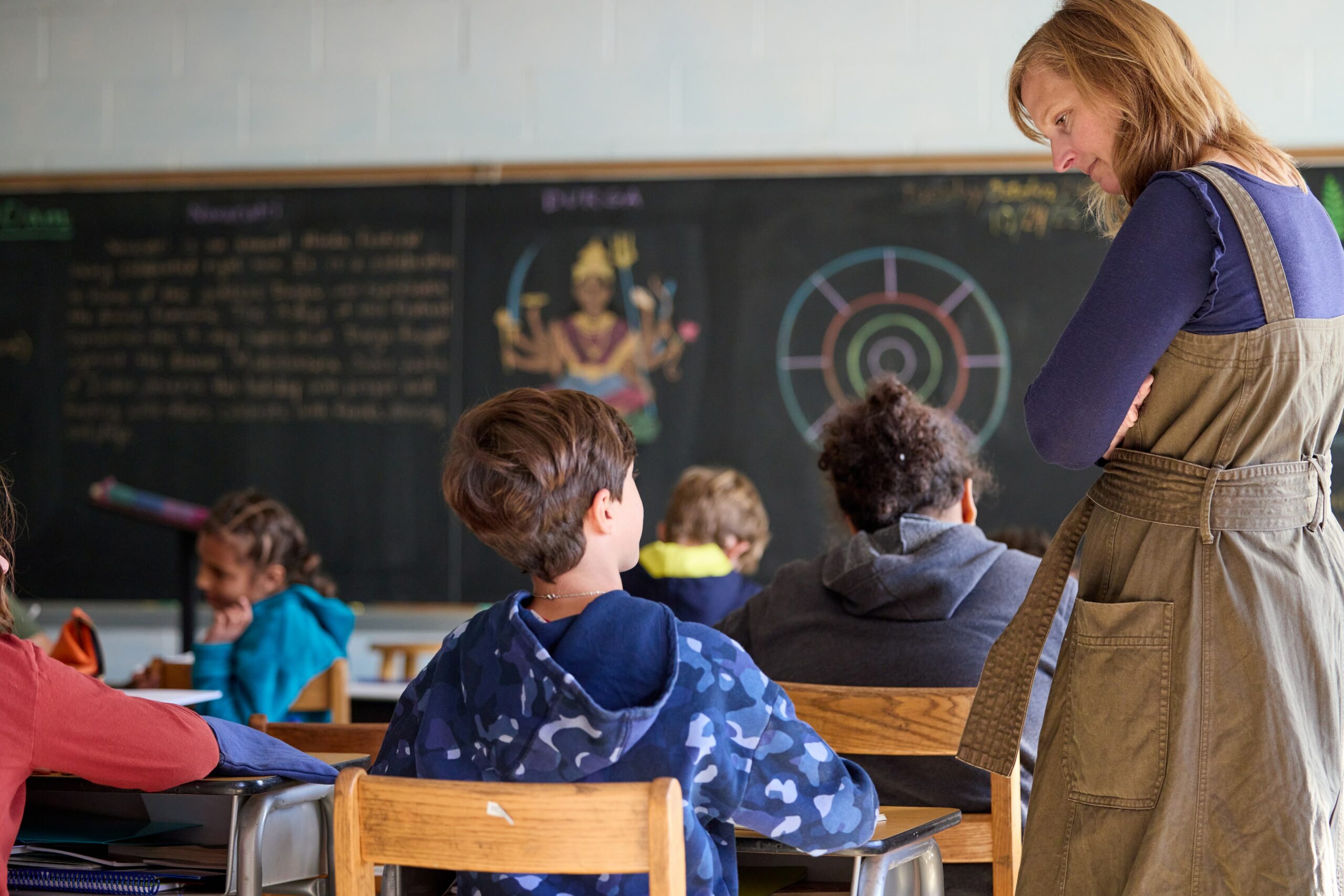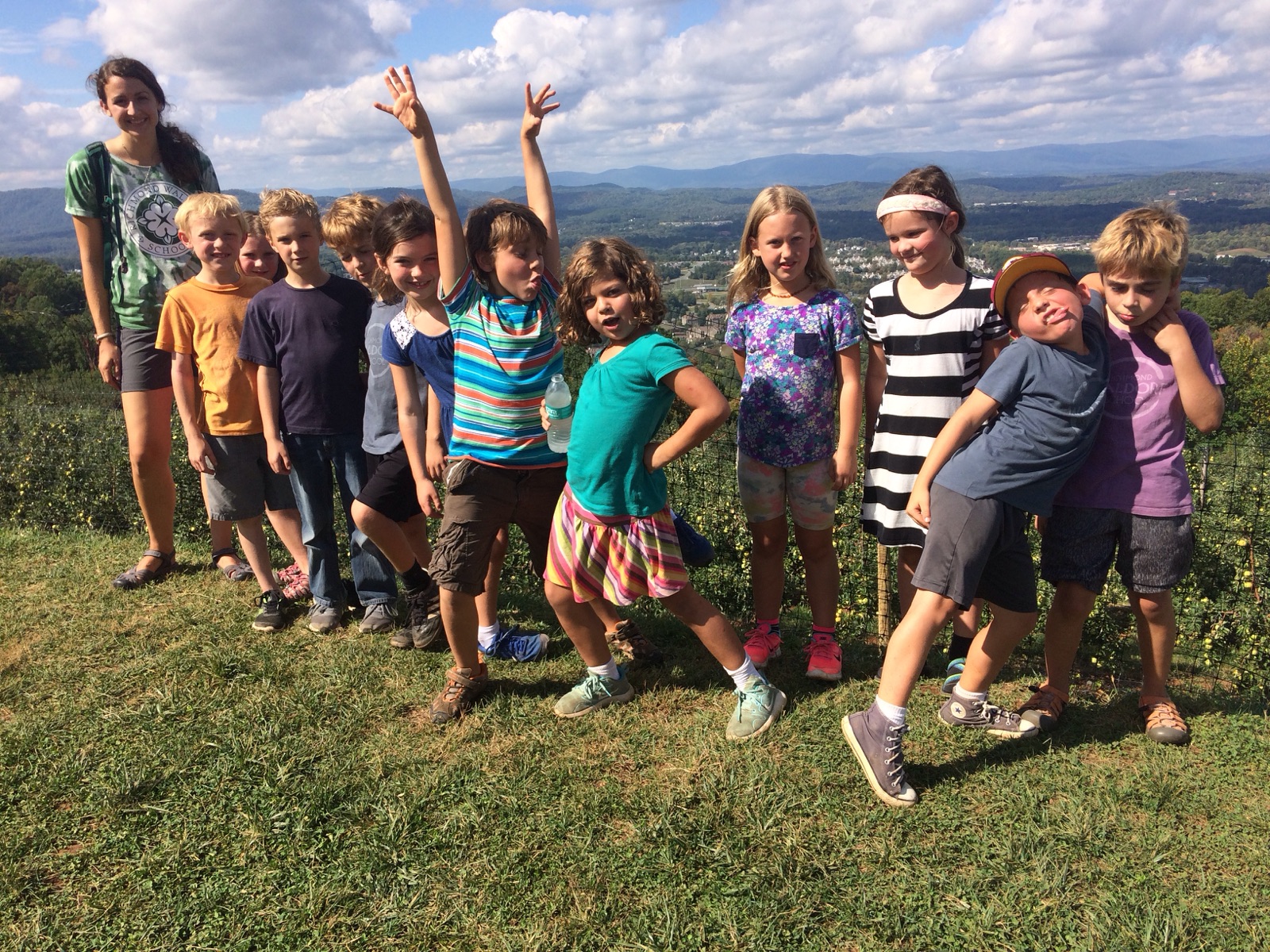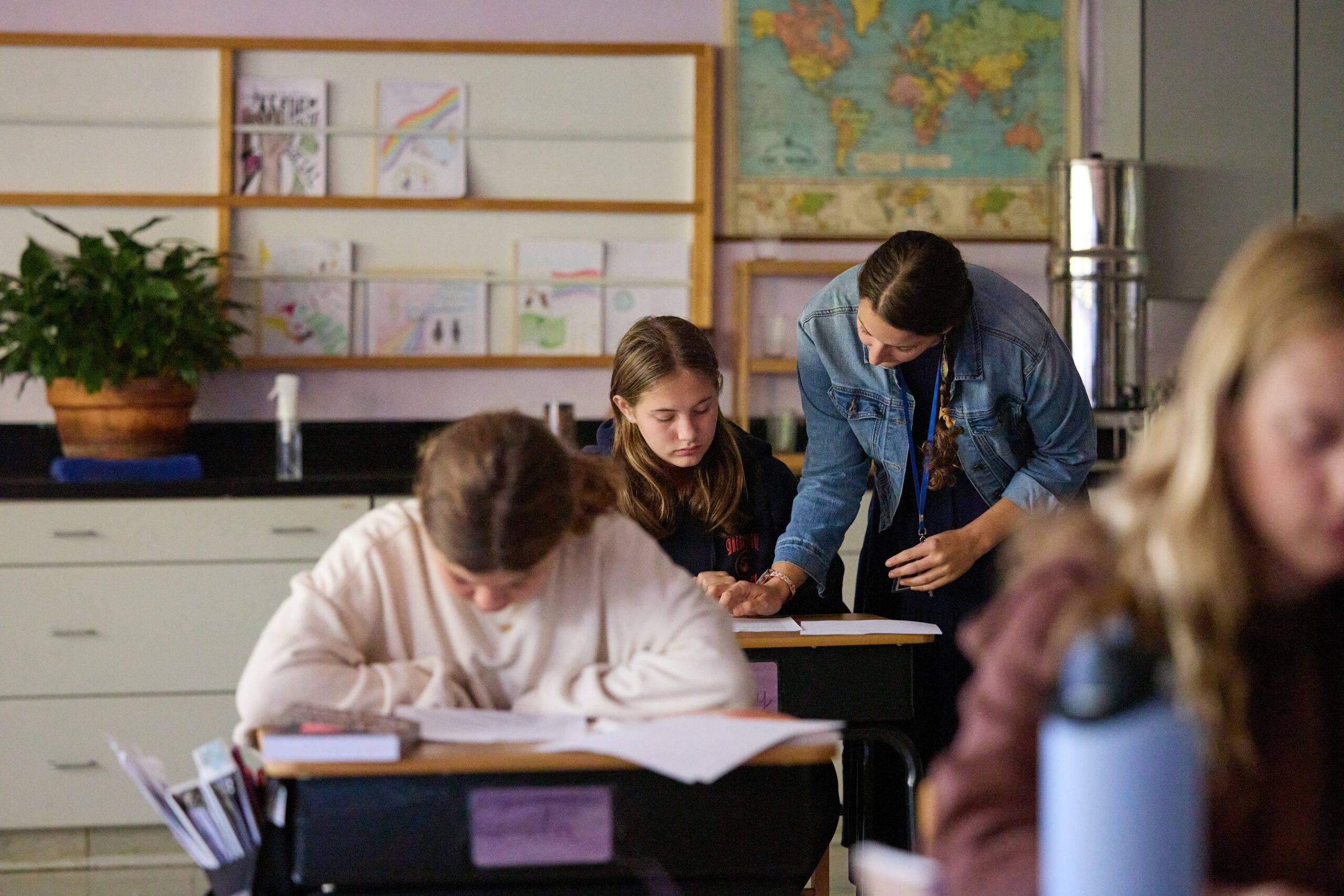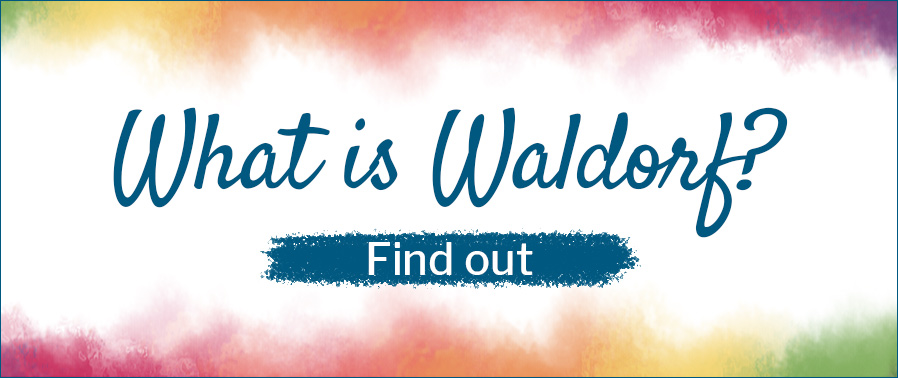Teacher Looping Promotes Student Success
Researchers have found that teacher looping is a key component in student success in school and beyond, as highlighted by a recent New York Times article. This practice involves students having one teacher for multiple years, which allows time for teachers to get to know each student personally, to understand their learning style, their strengths and challenges, and how to encourage them to do their best work. Waldorf education has practiced teacher looping for over 100 years because we know that it provides the strongest foundation for each child’s future in both school and life.

The recent opinion article, “What Most American Schools Do Wrong” in the New York Times reflects, “In North Carolina, economists examined data on several million elementary school students. They discovered a common pattern across about 7,000 classrooms that achieved significant gains in math and reading performance. Those students didn’t have better teachers. They just happened to have the same teacher at least twice in different grades. A separate team of economists replicated the study with nearly a million elementary and middle schoolers in Indiana — and found the same results.
Every child has hidden potential. It’s easy to spot the ones who are already sparkling, but many students are uncut gems. When teachers stay with their students longer, they can see beyond the surface and recognize the brilliance beneath. Instead of teaching a new cohort of students each year, teachers who practice “looping” move up a grade or more with their students. It can be a powerful tool. And unlike many other educational reforms, looping doesn’t cost a dime.
With more time to get to know each student personally, teachers gain a deeper grasp of the kids’ strengths and challenges. The teachers have more opportunities to tailor their instructional and emotional support to help all the students in the class reach their potential. They’re able to identify growth not only in peaks reached, but also in obstacles overcome. The nuanced knowledge they acquire about each student isn’t lost in the handoff to the next year’s teacher.
Finland and Estonia go even further. In both countries, it’s common for elementary schoolers to have the same teacher not just two years in a row but sometimes for up to six straight years. Instead of specializing just in their subjects, teachers also get to specialize in their students. Their role evolves from instructor to coach and mentor.”
This article affirms something that Waldorf education has championed from its inception over 100 years ago. We believe that effective teachers are committed to building long-term relationships with students, while demonstrating enthusiasm and honest striving in the world. Waldorf Class Teachers spend a tremendous amount of time and energy focused on their students, and how to show up for them in new ways, while honoring who they are, over a series of years. It’s not uncommon for a teacher at Richmond Waldorf School to follow a class from 1st all the way to 8th grade. In other cases, perhaps the teacher follows the class from 1st to 5th grade, with a new teacher for 6th to 8th grade. These long term relationships put our students at the center of our work, and call on a unique teacher who must have a passion for learning and teaching! Waldorf teachers are consistently presenting new material because we believe that being a subject-matter expert is secondary to deeply knowing how to reach the students in front of you. We believe that the striving of a teacher to master new concepts and artfully transform material into a living, engaging lesson is directly felt by students, and increases their own engagement and interest in the curriculum.
The ability to navigate and develop a longer term relationship with student and teacher has a ripple effect that helps Waldorf graduates build strong and deep relationships with other educators and mentors throughout their life. One alum reflected that for her, “being in a smaller class, socially, you have to work through conflict with people, and you have to develop that trust with your teacher. I think the teachers at Waldorf are pretty great at that. I can speak to my experience with Miss Amey, [who was my class teacher from 1st to 5th grade]. I feel like I build a relationship with her as a role model, and that has led me to develop really great relationships with professors and mentors I’ve had. I lean on my mentors a lot, even since graduating college and high school. There are so many people who have supported me. I feel like I have really thrived because I’ve developed that trust, and understood that someone in a teaching role will have my best interests at heart.”


As educators we believe that our work is to help students reach their potential and to come to know themselves in a way that inspires them to go out into the world to find their passions and make an impact. By cultivating strong relationships from an early age, Waldorf graduates are adaptable and have strong social skills with peers and mentors. We consistently hear from our graduates, and the teachers who work with them, that they see their teachers as resources, want to get to know them, and stand out amongst their peers for their strong presence in the classroom and eagerness to learn from their teachers.
We know that through long term relationships we can build upon skills, both academic and social, and that there is time to ensure that the lessons stick and are meaningful. RWS prides ourselves on long-term teaching faculty who are committed to their class and the journey of a Waldorf teacher. For us, the individualization and strong connections that are fostered through teacher looping are incredibly important. With this approach we keep the student at the forefront and center of our work. It’s inspiring to see their growth over a long period of time, and to see how these relationships we instill during their elementary and middle school years plant a seed that will grow and blossom, enabling them to fully utilize their resources and build healthy, supportive, and caring relationships with a multitude of people as they move through high school, college, and careers.
Want to Learn More?
We would love for you to explore the Waldorf approach! Sign up for a tour, or watch our school video where students talk about life at Richmond Waldorf School. Get to know us and see if RWS is right for your child.
At Richmond Waldorf School, we recognize that our student’s physical, social, and emotional well-being are a key part of their ability to learn and thrive. We look forward to meeting you and sharing more information about Waldorf education.
Valerie Hogan
Enrollment & Marketing Administrator
| 804-377-8024 ext 3
Richmond Waldorf School is a non-profit, private school in Richmond, Virginia offering Waldorf education for grades Pre-K – 8th grade.

